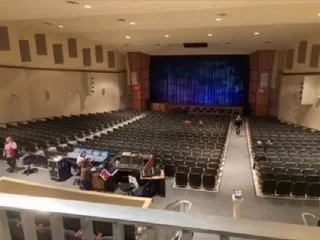What Does It Take to Make a Show?: Looking Behind the Curtain
By MJ Whelan
The Drama Club has been giving us musicals and plays for years, but what does it take to make these shows? Is it talent? Time? Hard work? Working as a team? We’ll be scratching the surface of that question today, mainly focusing on what it takes to even get a show and the time and effort needed.
First, an aspect that no one thinks about, is getting a show picked out. More goes into picking out a play than just finding which scripts are available and getting the scripts. First, there’s the question of whether or not the club can afford the rights to perform a play. If you can’t buy the rights, you can’t perform the play without risking serious repercussions if you get caught. Scripts are also part of the process, whether you buy or rent them. If you rent them, any damages cost more than what you originally paid for them. Also, the more well-known a play or musical, the more the scripts cost. Filming your play, whether for personal or public use also heaps more money onto that. Scripts that have entered into the public domain are cheaper than other plays,
Then, after all that budgeting, comes approval from administrators. Before you can even buy scripts or rights, the administrators have to approve the play. Even if it gets approved and you make it all the way to show night, a single complaint from a parent could mean cutting things. Most cuts have to do with the original line being inappropriate or unneeded. However, you can’t make major changes to plays without incurring issues. Sometimes the changing of lines is done by the administrators, due to whatever reason.
Finally, after all that, you can cast and recruit tech people. Now, you need to organize auditions, get the word out, and start rehearsals. Anybody can guess that plenty of thought goes into casting for a production. But what about tech? Lighting, sound, and set changes, what goes into that? For things like set changes, it’s not that hard. It just comes down to finding somebody willing to help. The number of people needed in that position can change depending on how set-heavy a show is. Lights and sound are a different story, you can’t just throw somebody at a light or soundboard and expect them to give you an amazing show. Someone must be taught all the necessary skills required to operate the boards effectively. Moving on, the show is coming up, and you need to get the word out. Now you have to design and print posters and advertise on social media. Printing the posters is another cost you may have to pay.
Overall, more goes into a play than you would have originally given thought to. So think about it the next time you watch a production on stage.

